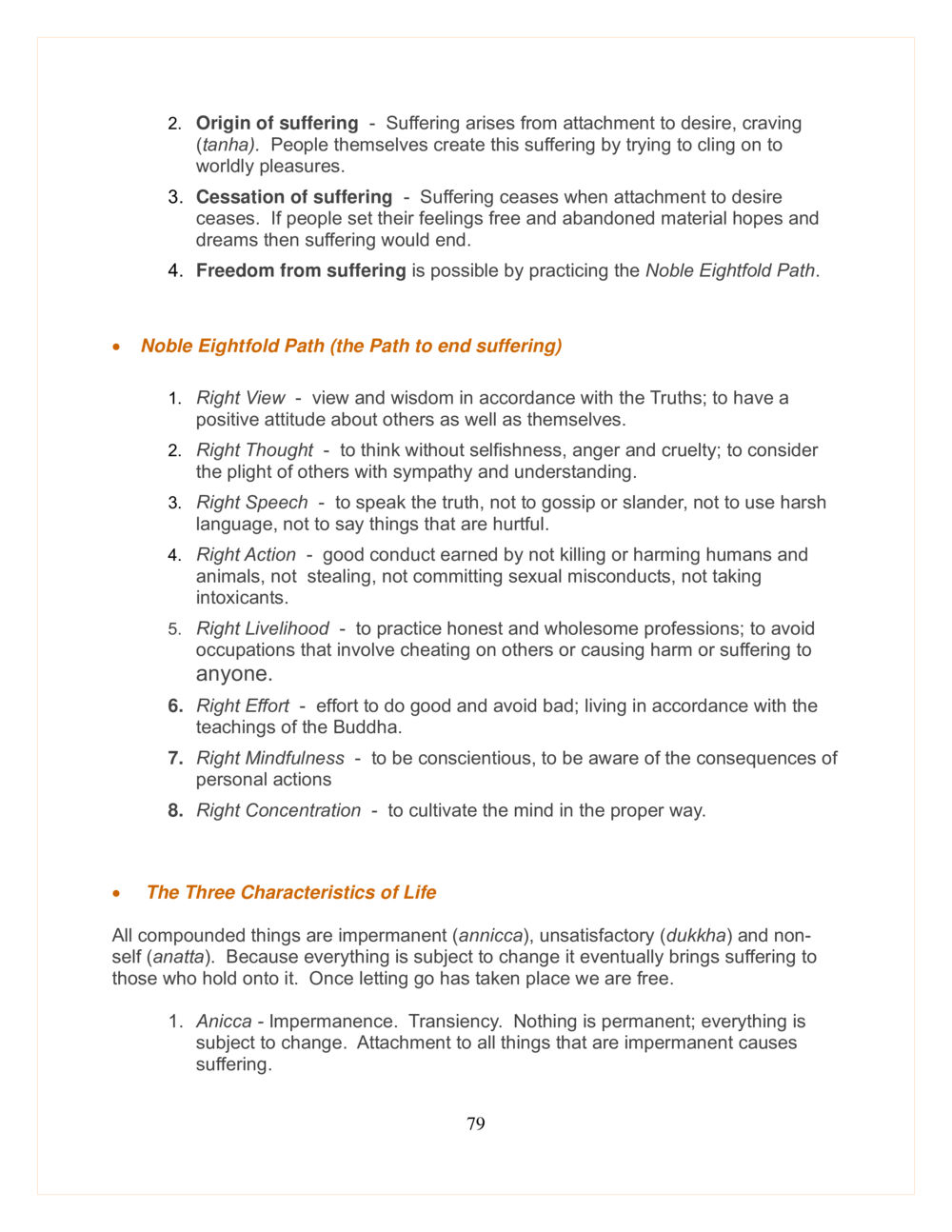Understanding Suffering and the Noble Eightfold Path : หน้า 79/115
DMC Translor’s handbook : หน้า 79/115 Explore the origins of suffering and how the Noble Eightfold Path offers a way to freedom through wisdom, right action, and mindfulness.
1 ครั้ง

สรุปเนื้อหา
This text discusses the origin of suffering, which stems from attachment to desire and worldly pleasures. It highlights that suffering ceases when such attachments are released. The Noble Eightfold Path is presented as a means to end suffering through right view, thought, speech, action, livelihood, effort, mindfulness, and concentration. Additionally, it details the three characteristics of life: impermanence (anicca), unsatisfactoriness (dukha), and nonself (anatta), emphasizing that attachment to impermanent things leads to suffering. Freedom from suffering is achievable by embracing these teachings and understanding the transient nature of existence. For more insights, visit dmc.tv.
หัวข้อประเด็น
-Origin of Suffering
-Cessation of Suffering
-Noble Eightfold Path
-Right View
-Right Thought
-Right Speech
-Right Action
-Right Livelihood
-Right Effort
-Right Mindfulness
-Right Concentration
-Three Characteristics of Life
-Anicca



















































































































